Find links here to EYLF documents on early literacy.
100 Stories Before School: Best Practice Information.
Leonie Gabriel, Director at Childrenfirst, Balmoral and Alpha Street Preschools, Blacktown; has provided examples of links from their high quality programmes to the Australian National Quality Standards and the Early Years Learning Framework.
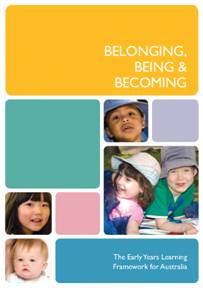
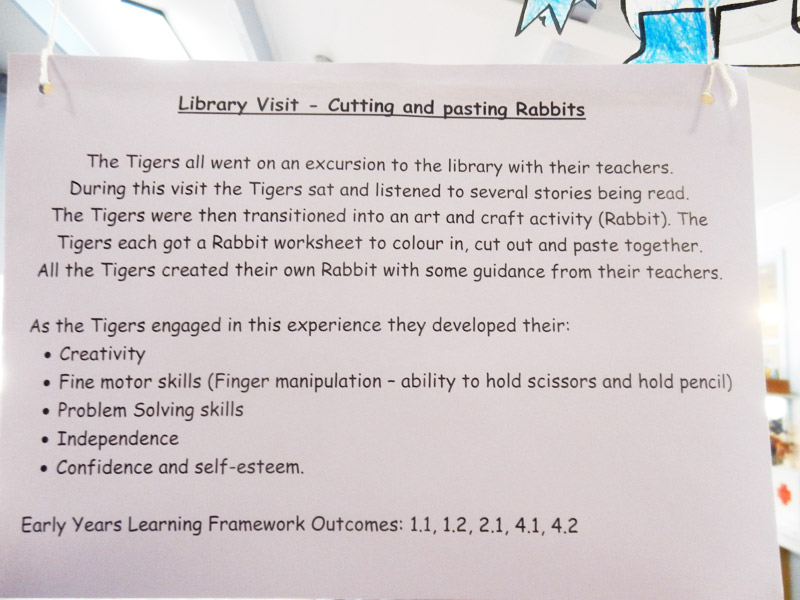
Early Years Learning Framework relating to 100 Stories Before School:
Learning outcomes
LO 1 – Children have a strong sense of identity.
1.3 Children develop knowledgeable and confident self-identities.
LO 2 – Children are connected with and contribute to their world.
2.2 Children respond to diversity with respect.
2.3 Children become aware of fairness.
LO 4 – Children are confident and involved learners.
4.1 Children develop dispositions for learning such as curiosity, cooperation, confidence, creativity, commitment, enthusiasm, persistence, imagination and reflexivity.
4.2 Children develop a range of skills and processes such as problem solving, inquiry, experimentation, hypothesizing, researching and investigating.
4.3 Children transfer and adapt what they have learned from one context to another.
LO 5 – Children are effective communicators
5.1 Children interact verbally and non-verbally with others for a range of purposes.
5.2 Children engage with a range of texts and gain meaning from these texts.
5.3 Children express ideas and make meaning using a range of media.
Practice Principles
Holistic approaches Relationships with families
Intentional Teaching High expectations and equity
Cultural competence Respect for diversity
National Quality Standards – related to 100 stories project
Quality area 1: Educational program and practice.
This quality area focuses on ensuring that the educational program and practice is stimulating and engaging and enhances children’s learning and development.
Quality Area 5: Relationships with children.
This quality area focuses on relationships with children being responsive, respectful and promoting children’s sense of security and belonging. Relationships of this kind free children to explore the environment and engage in play and learning.
Quality Area 6: Collaborative partnerships with families and communities.
This quality area focuses on collaborative relationships with families that are fundamental to achieving quality outcomes for children and community partnerships that are based on active communication, consultation and collaboration.
Related early literacy videos and e-newsletters from Early Childhood Australia Inc. and the National Quality Standard Professional Learning Programme (funded by the Commonwealth of Australia)
You do need to install vimeo to look at the videos- easily done. – Vimeo link: https://vimeo.com
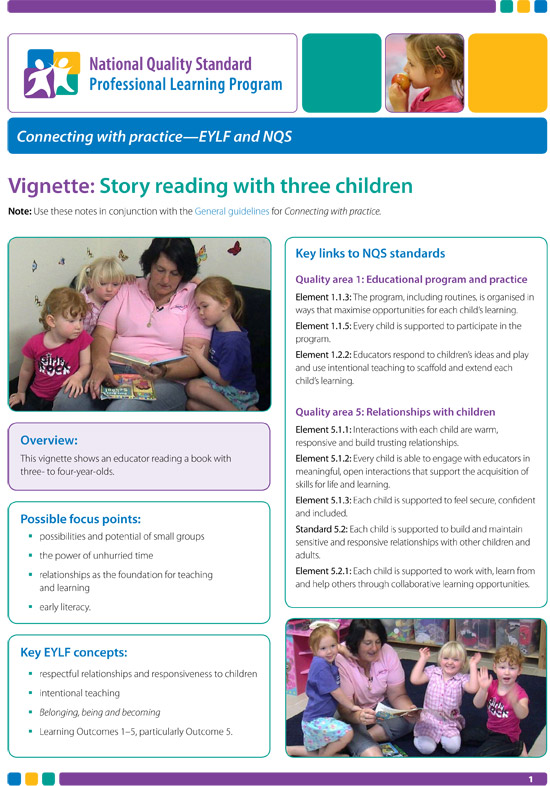
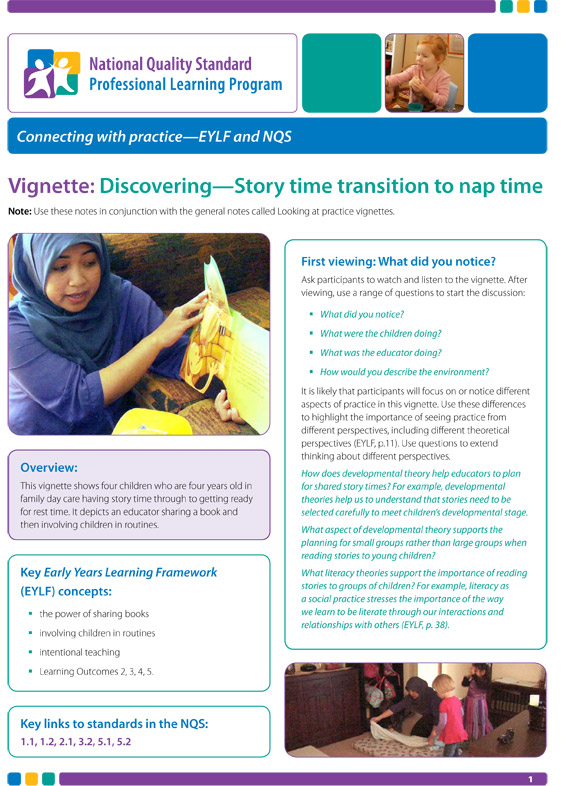
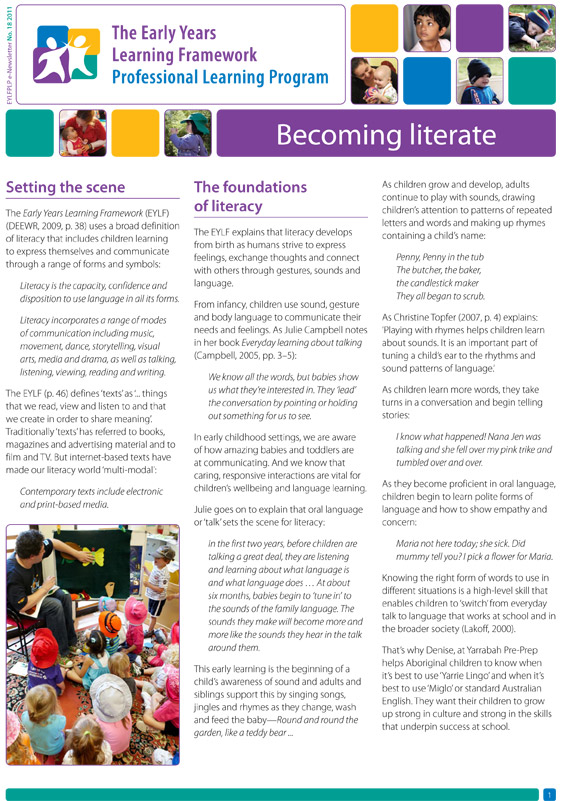
E-Newsletter 18 Becoming Literate
Discussion on the foundations of literacy from birth including comments on the Early Years Learning Framework Outcomes.
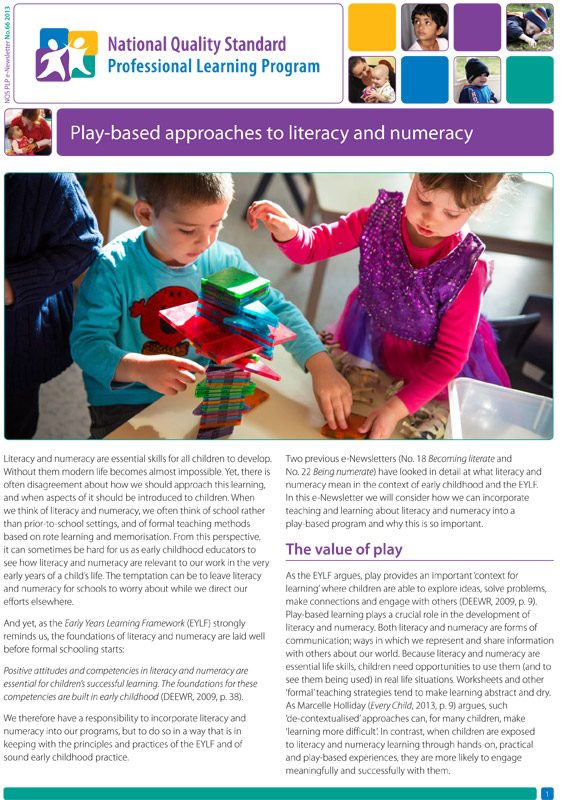
E-Newsletter 66
Play based approaches to literacy and numeracy.
“Luke explains that some of this learning occurs incidentally, but other aspects require planned interactions between a child and a knowledgeable adult.”(From webpage)
